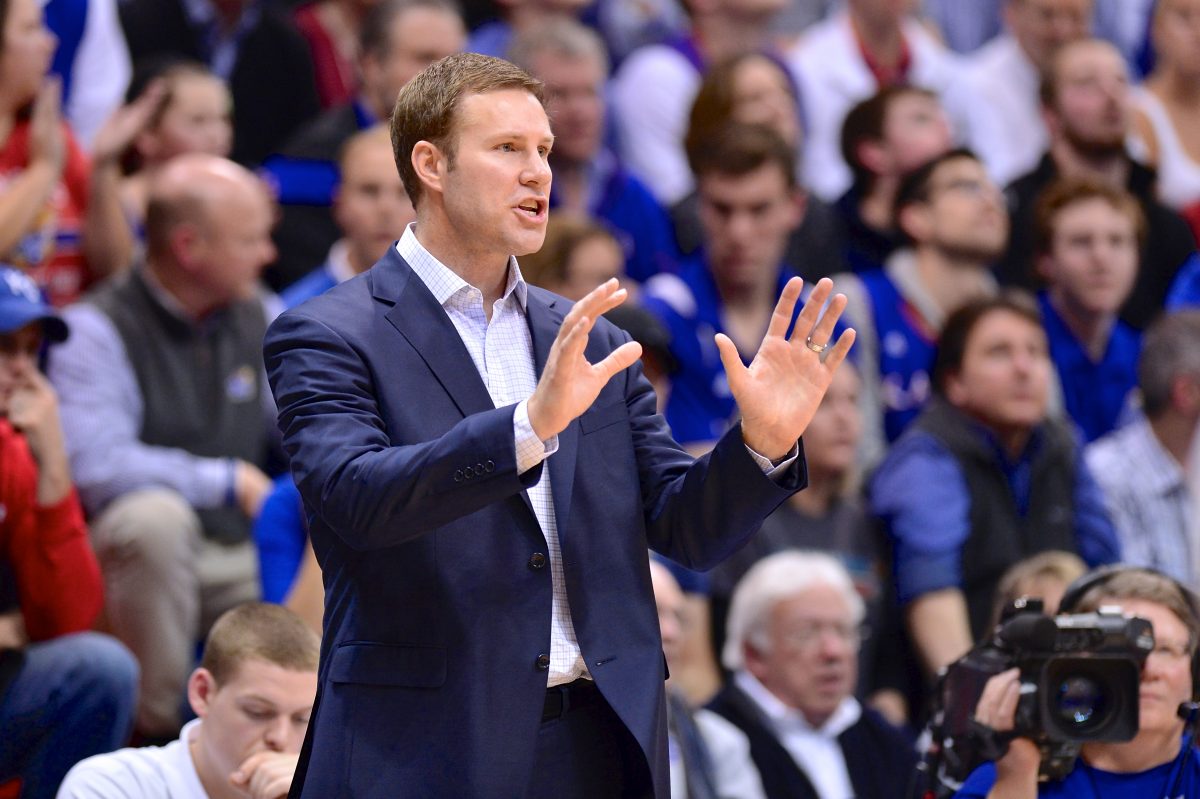AMES — Fred Hoiberg sat down, drew in a deep breath, then spoke.
Iowa State’s celebrated and virtually messianic men’s basketball coach talked for 11 minutes and seven seconds before fielding a question during a Friday news conference convened to shed light on his next — and hopefully last — open heart surgery he’s slated to undergo next Friday at the Mayo Clinic in Rochester, Minn.
He lightened the tone with a a couple of jokes.
He wavered briefly when recalling a scary moment in which his wife, Carol, came to his aid after his first such surgery 10 years ago.
He then stopped talking about his heart, settling, instead, to speak powerfully from it.
“One of the reasons I did want to talk about this is being a public figure, you talk about heart health, you can talk about raising awareness,” said Hoiberg, who expects to be fully recovered to help with recruiting in July. “Get checked. I was the perfect example. I was a professional athlete in the best shape of my life and here I am with a ticking time bomb in my chest. So it’s important to make sure if one person realizes, ‘Well, I have heart history. I’m obese. I smoke. I eat fatty foods’ — get checked.”
Hoiberg’s advocacy for groups such as the American Heart Association is well known.
The former Ames High, then ISU, then NBA star uses his heart to make inroads into yours.
In essence, in the arena of public health, he practices precisely what he preaches to his players: “Play for each other. Be selfless.”
“Hell, I know more about the heart now than I think I do about basketball,” Hoiberg said. “You just research it so much and it becomes a passion. … Again, you feel somewhat of an obligation when you’re in this seat, when you’re a public figure to get the word out to get checked. That’s the important thing.”
Hoiberg detailed the complications he experienced after he underwent open heart surgery the first time. Shortly after coming home, he told Carol he needed some fresh air. Somewhere along the way, Hoiberg lost consciousness and collapsed while trying to walk up a set of stairs.
“Carol came in and found me face down,” Hoiberg said, his voice cracking with emotion. “I was on a blood thinner at the time and a pool of blood coming out and she heard the crash and came in and called 9-1-1 and they rushed me back down.”
It’s that memory and many others that wash back over Hoiberg as he faces another surgery.
His prognosis is very good. There’s pain to endure, of course, plus the slow-and-steady recovery process. But if complications don’t crop up after a replacement mechanical heart valve is placed in his chest, he’ll be as good as new, for all intents and purposes.
One adjustment: He’ll be on blood thinners the rest of his life, which comes with lifestyle changes.
Change No. 1: No more leafy, dark green vegetables.
“Damn,” Hoiberg joked.
Another: He’ll have to stand to the sidelines more during practices.
“ I’ll bruise easier and if you get hit it could cause some internal bleeding with the blood thinners, so those are the types of things, but i think that’s easy enough to deal with,” he said.
What’s difficult to deal with is the thought of putting his loved ones through additional stress.
It’s inevitable and it will pass, but it concerns Hoiberg.
“You worry about your family,” he said. “You go in there and put the trust in your doctors. Obviously a lot of things help get you through — your faith and everything like that. But your family when you’re in that room, and my first procedure took about eight hours, they were the ones sitting in that waiting room. Hell, I didn’t know what was going on. I was shut down. It is. You worry about your family, but I guess being through it once will help them through the process.”
It should help him, too — and maybe you.
There’s a reason Hoiberg stresses overcoming adversity to his players.
It’s a universal lesson, that transcends second-round NCAA Tournament exits or deep runs into the Sweet 16. Winning? Losing? Big picture, it’s all intertwined and found under the heading: Stress.
Get checked. Move on. Be self-aware — emotionally and physically.
“I’ll still be able to be on the phone and do all kinds of things that I can do,” Hoiberg said. “My thumbs will still work so I can still text and that type of thing. It’s a matter of staying positive. … But there’s so much support that I had the last time through this and the support that I’m already getting now will definitely help through this recovery.”
TIE TALK
Remember when Hoiberg stopped wearing a tie during games in December? And the semi-firestorm from some it created on social media? Well, Hoiberg has an obvious explanation for why he went tie-less from that point on.
“I got a little lightheaded with the tie,” said Hoiberg, who twice delayed open heart surgery (in September and December) to keep coaching his 2014-15 team. “And that’s one of the big symptoms when you know it’s time, is when you get lightheaded and tired — and hell, you’re always tired in this business, so you don’t know if it’s the valve or just the job. But that’s when I stopped wearing the tie and I apologize for anybody I offended. I got all kinds of messages. I wasn’t trying to offend anybody. I just felt my health was more important that that. I wasn’t disrespecting the game. I had always worn a tie up to that point, so I apologize for not wearing a tie the last half of the season.”





